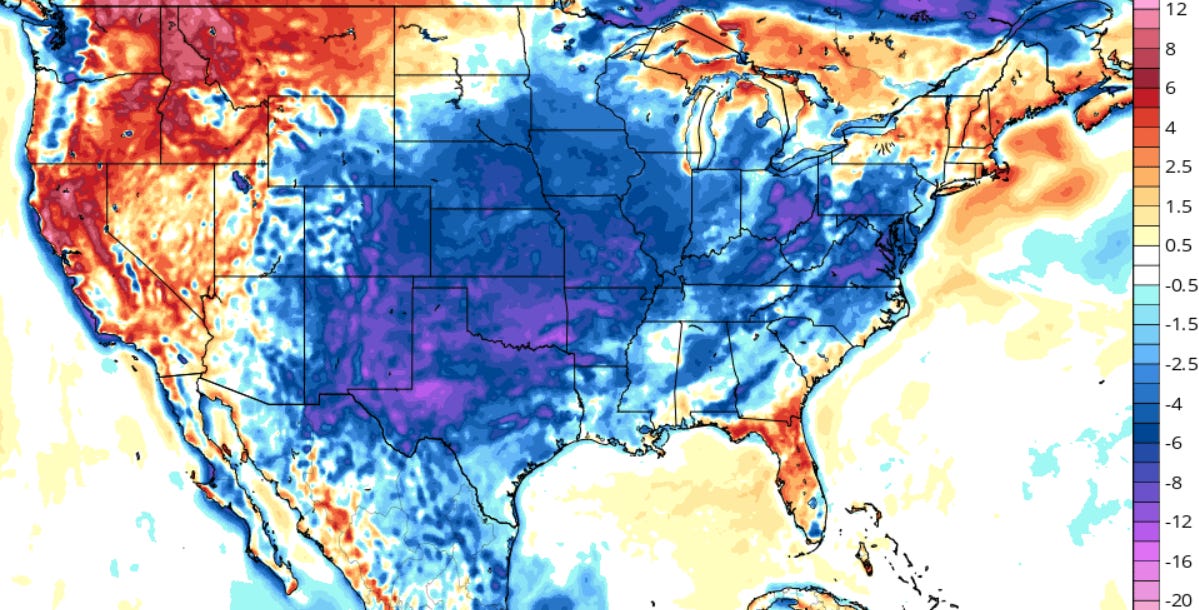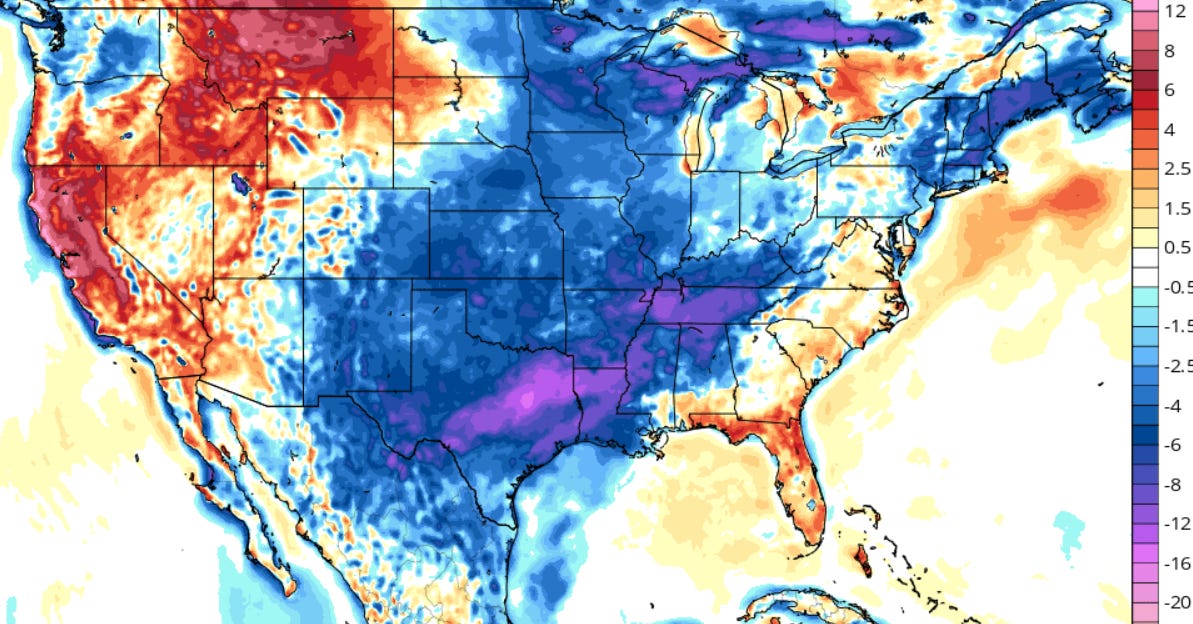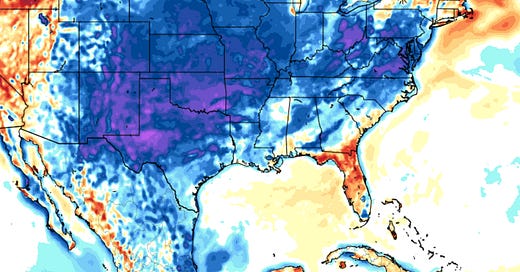Texas Cold Front Breaks Daily Records; Aussie Freeze Exposes Energy Shortfalls; UK's Cool Summer Results In Low Bat Numbers; + CO2 vs. Natural Climate Variability
"All of the media and environmentalist hype is just noise."
Texas Cold Front Breaks Daily Records
Across the United States, anomalous cold has been the dominant story this week -- hence crickets from the media.
The mercury across the majority of the CONUS has held below average for going on a week now, with more of the same forecast.


Daily records have fallen, including at Killeen-Fort Cavazos, Texas which set new record-low maximum Tuesday of 82F. According National Weather Service books, this is the lowest ever high temperature for July 23 in the area, beating the 86F from 1978.
A cold front blew into Texas this week, tumbling the mercury and rolling in thunderstorms through Central regions.
Since Monday, daily records have also been toppled across Arkansas, Colorado, Kansas, South Dakota, Minnesota and Montana — that is, according to NOAA's skewed (often times fabricated) dataset.
Aussie Freeze Exposes Energy Shortfalls
An unusual and long-lasting cold spell across Australia's southeast has led to record demand in the national electricity market (NEM).
Throughout April, May, and June, the persistently low temperatures, particularly in Victoria, drove a significant increase in morning peak electricity demand, according to the latest figures from the Australian Energy Market Operator (AEMO).
Decreased wind in the southern states has also reduced the power output from turbines, marking the lowest quarter of wind power output since 2017 (despite additional capacity).
The combo of low temps and no wind has caused the wholesale spot price for electricity to surge by 23% compared to the same period last year. Gas-fired power generation had to step in to fill the gap, increasing by 16% from the previous year, which, in turn, has seen gas prices reach almost $30 per gigajoule, levels reminiscent of the energy crisis of two years ago.
More importantly, this has also pushed gas infrastructure to breaking point, with AEMO highlighting immediate risks to supplies. The operator warns that peak demand days over next three months (or more) risk rapidly depleting gas storage levels.
Rick Wilkinson, chief executive of consultancy EnergyQuest, asserts that the shortfalls were predictable and are a direct result of declining investment in new gas supplies. He emphasized the increasing vulnerability of Australia to supply shortfalls due to a lack of investment and years of politicized hostility toward the gas industry.
Predictably, AEMO's CEO Daniel Westerman continues to champion renewables as the solution to Australia's national electricity market woes, stating: "The role of batteries in supporting morning and evening demand peaks has become more prominent."
While this is true, it results from flawed and damaging policy decisions rather than sound reasoning. It's like saying the role of bandages has become more prominent because we keep shooting ourselves in the foot.
UK's Cool Summer Results In Low Bat Numbers
Conservation groups across England are reporting a surge in malnourished bats due to the UK's historically cool summer, which has significantly reduced the population of insects, including butterflies and moths, that the bats feed on.
Keep reading with a 7-day free trial
Subscribe to Electroverse Substack to keep reading this post and get 7 days of free access to the full post archives.



